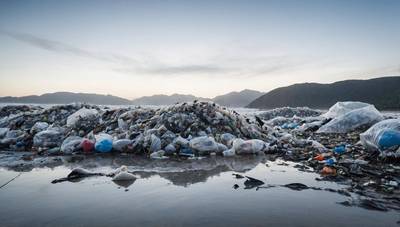The plastic pollution talks are pushed into overtime by countries pushing for a late breakthrough
The talks to create the first legally-binding treaty in the world to combat plastic pollution ran overtime on Thursday. They were adjourned for the next day.
Bridges are being built by countries across the world
Deep divisions
The extent of future restrictions on what was supposed to be the last day of the United Nations negotiations in Geneva.
Luis Vayas Valdivieso told the delegates that the meeting would continue into Friday.
The United Nations Environment Assembly established the INC in 2022. Its mandate was to create a global, legally-binding treaty on plastic pollution.
After the Wednesday proposal was rejected by delegates who wanted an ambitious plastics agreement, countries waited until late Thursday night for a new draft text.
Panama, Kenya and the European Union were among the states that pushed for a comprehensive plastic pollution treaty. They expressed frustration at the fact that the key articles on the life cycle of the plastic pollution, from the production polymers to waste disposal, as well as harm to health, had been completely removed from the text.
Some oil-producing countries are opposed to limiting the production of virgin polymers derived from coal, petroleum and gas. Others want to limit it and have tighter controls on plastics and hazardous chemicals.
"You can't reconcile these positions. I believe that the chair will continue to try." David Azoulay is the managing attorney at the Center for International Environmental Law in Geneva. He said, "I don't think he will be able to reconcile these two positions, but I believe that the chair will keep trying."
EU Commissioner Jessika Roswall stated that a "weak and static agreement" serves no one.
"A treaty covering the entire life cycle of plastics, and that can evolve along with science, is a crucial step." "The next few hours will reveal whether we are able to rise to the occasion," she said in an official statement.
Panama called the draft text of Wednesday "repulsive", and demanded a complete rewrite.
Saudi Arabia, who is opposing major curbs on trade, has said that nothing can be agreed until the scope of the treaty is clearly defined.
After a failed meeting of the Intergovernmental Negotiating Committee held in South Korea at the end of last year, more than 1,000 delegates gathered in Geneva to begin the sixth round.
As they waited in the U.N. Plenary Hall in Geneva to continue discussions, advocacy groups held up a banner against a weak treaty and chanted.
The OECD warns without intervention that plastic production will triple in 2060. This will further choke oceans and harm health. It will also exacerbate climate change.
COMPROMISE
The Norwegian Minister for Climate and Environment, Andreas Bjelland Eriksen (co-chair of High Ambition Countries Group), said that all parties must compromise.
"We're willing to discuss every article, like three or six, in order to come up with a package that is good for everyone," said he, indicating a potential willingness to revisit restrictions on chemicals and manufacturing.
Ross Eisenberg, the president of America’s Plastic Makers (part of the American Chemistry Council), expressed optimism.
He said: "We believe this could be really good for industry, for society and for the environment."
The council, who supports a deal that does not limit plastic production, warned the U.S. could not ratify any treaty containing provisions banning chemicals or limiting plastic production.
But Colombian legislator Juan Carlos Lozada said that no deal was better than one watered down.
Unilever is among the 300 companies that have called for an ambitious global treaty to harmonise rules.
Ed Shepherd, Unilever's senior global sustainability manager, said: "If we do not achieve that level of harmonisation we risk further fragmentation... and higher costs."
(source: Reuters)


